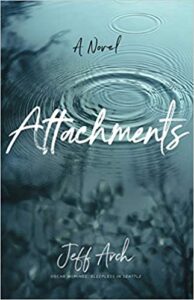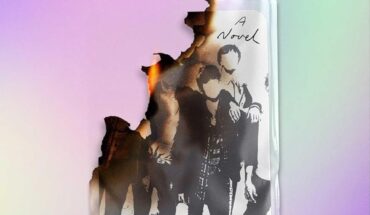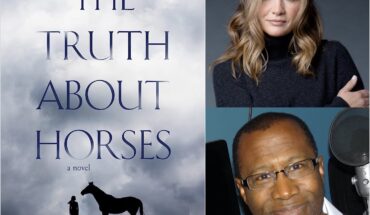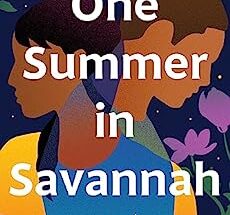 In 1993, Jeff Arch’s screenplay Sleepless in Seattle became a hit movie, won him an Academy Award nomination, and launched a thirty-year career writing for films. For most of those years, though, Jeff was haunted by a story that insisted it could only be told as a novel. Attachments, Jeff’s fiction debut, is a lyrical, heartwarming story about three former boarding-school students called back to campus by the deathbed request of their dean. Pick, Goody, and Laura must face their shared past, including a betrayal and a secret that could change everything for the dean’s teenage son.
In 1993, Jeff Arch’s screenplay Sleepless in Seattle became a hit movie, won him an Academy Award nomination, and launched a thirty-year career writing for films. For most of those years, though, Jeff was haunted by a story that insisted it could only be told as a novel. Attachments, Jeff’s fiction debut, is a lyrical, heartwarming story about three former boarding-school students called back to campus by the deathbed request of their dean. Pick, Goody, and Laura must face their shared past, including a betrayal and a secret that could change everything for the dean’s teenage son.
You’ve been a successful screenwriter for 30 years, what made you decide to write a novel?
I did try [Attachments] as a screenplay, but couldn’t get it to work, so I put it away. But the story wouldn’t let go of me. And then one day I just said, I think it’s supposed to be a book, and it’s been trying to tell me that, and that’s why it won’t work as a movie. Everything took off after that.
How long did it take you to write Attachments?
I got the idea in 1988 and didn’t start writing it until ’98. It probably took four years, five years, maybe, but spread out over a much longer period. I was working hard [on movie projects] back to back, and could only sit down with it for a month here, a couple of weeks there. And every time [a project] went south, the silver lining was that now I could go back to the book. The story was always there, and those characters were always there. Honestly, they just wouldn’t let go. And I’ve learned to listen to that.
How different is the experience of novel writing from screenwriting?
If you’re a born novelist, screenplays are going to be really, really, hard. Going in the other direction, I had all this discipline, this economy of style and language that screenplays force on you. Going in as a novelist, I was a little concerned. What stops novelists? How do they know when it’s over? With a screenplay, you’ve got a hundred or so pages, no matter what story you’re trying to tell. So, for me anyway, it was much better to be able to expand rather than contract. Also my training as a screenwriter had a lot to do with my training in martial arts…getting everything down to its essence…not using a single word that you don’t have room for. But the big lesson is that no matter what you’re writing, you have to keep the story moving.
The novel is set primarily in a boarding school in the Poconos. Did you have experiences as a student that informed the plot?
There’s one incident in that book that did really happen; everything else almost happened or kind of happened. This isn’t going to be a spoiler, but I was caught in my girlfriend’s room in the girls’ dorm. And it was two weeks before the end of the junior year, so instead of getting kicked out, I was politely informed I wouldn’t be asked to return. I finished out in a [high]school in my hometown.
The idea for a novel comes from many places. Where else did Attachments come from?
High school is an intense experience anyway, but going away to school at that age just adds to that because you’re away from home and all that’s familiar. [Like the character of Goody,] I did have a father that died between my sophomore and junior years. There was no support, and I probably was too proud to accept it if there was. One person who reached out a bunch of times was the guy I based [headmaster] Henry Griffin on. Many years later, I got to spend a day with him, and his wife. Once they remembered who I was, the stories flowed freely, and it was just one of the best days ever. On the way home from that, Attachments was born. I don’t think there’s anybody in life I admire more than the man I’ve based [Henry Griffin] on.
One of the main characters, Goody, runs off from school, is picked up by a VW bus full of Buddhist monks, and ends up studying Buddhist philosophy. Do you have some background with Buddhism?
I was exposed to a lot of it. You’re not going to grow up in the sixties without some brush with it. I have a close friend from college who became a Buddhist monk. Through my friendship with him I started reading texts, and eventually I started meditating and sitting. Also the martial arts are infused with Buddhist and Taoist beliefs because that’s where these arts come from. My teacher was a Korean Grand Master, and he taught me through experience, and transmitted the lineage to me. There was very little discussion.
I was born Jewish and raised Jewish, and yet nobody really talked about God or anything, as in what all this stuff we were doing actually meant. I was a pretty thoughtful kid and couldn’t figure out why nobody wanted to talk about these things. And when I started to read about the Buddhists, they have a way of putting things where they just strip away everything. Which is great training for writing. They strip away everything that doesn’t matter, and focus on what really is. It takes a lot of discipline. You have to eat your ego a lot.
You have six point-of-view characters, ranging from a teenage student at the school to three former students to the school’s headmaster, who’s just had a stroke. Were any of those POV characters more challenging to write?
The characters were stubborn as hell, but also amazingly cooperative. If they understood what I needed from them, they would do amazing and surprising things, time after time. I had more headaches with Goody’s character–not when they were students, but after he comes back [as an adult]. He’s been gone almost twenty years, and he’s had experiences that I suspect are unfamiliar to a lot of readers. Very few people know what a Buddhist monk is, and how [you become one], and who these people are. So there was a lot of explaining to do, and Goody can’t be the one to explain it, so I had to find other ways, to spread his backstory throughout the book so that nobody has to feel like they’re getting a lesson in anything. It was really, really hard to find that balance and find a voice for him in the parts of the story where they’re grownups.
I’m fascinated by the theme of “attachments” in the novel. Can you speak to that theme?
A lot of this book has to do with people still in trouble with themselves and with each other over something that happened almost twenty years before. We’re all carrying stuff like that around. And it’s not the thing that happened to us, but our attachment to what we think the meaning of it was that’s causing us all the suffering. If someone says something hurtful when you’re in seventh grade, it hurts when you’re in seventh grade. If it still hurts when you’re 64 years old, it’s not the thing they said, it’s your attachment to that [thing]. It’s hard as hell, but letting go brings instant relief.
What was your publication process like? Did it help to have connections through your screenwriting career?
Certainly it helps. I met Brooke Warner [publisher of Spark Press] at the Kauai Writer’s Conference in 2018. She loved [Attachments] right away. Spark is a hybrid publisher which I did not know existed. For me, it’s the perfect model. You’re not paying them to publish the book, you’re going in with them on the cost. And that’s a big difference. It’s not a vanity thing, they’re still very selective because it’s their money too, and their reputation as tasteful and effective publishers. But I have a hand [in it] because we’re business partners and it’s not this owner-underling relationship. I had a say in a lot of the things that I would not have had a say in, and that has made huge differences, all across the board. This model of publishing was coming along and evolving and waiting for just the right moment. For me, it worked out perfectly.
Do you think Attachments will be made into a movie?
I can’t make any announcements, but it’s getting close. Now that the book’s out, the better it does, the better our chances are of getting the right situation.
I’ve adapted seven books [written by] other people into screenplays. So I’m ready to turn that on myself. I’ve learned to know when something has to go, even if it’s wonderful. I have warehouses full of wonderful stuff that in the end, didn’t fit. And I’ll be just as savage and just as careful with my own as I was with the other authors I’ve adapted.
What’s next for Jeff Arch?
I’m working on a TV series right now called “Tiny Houses: the Ballad of Amy and Mike.” It’s a romantic comedy that, again, I started as a movie. It was not fun. I loved the idea, I loved the characters, but it was just beating me up, and I couldn’t make it work and I was just dreading going in to do it every day. And then, one day, it said to me, “You idiot, this is supposed to be a series.” Suddenly I realized, oh wow, I can open this up. I can breathe, I can take eight whole episodes to do what I would have had to do in ninety minutes. Stories are like kids: they all have to learn the same basic stuff, but they’re also individuals, and the best way to raise them is according to who they are. If you have a kid who’s a movie, you don’t make her be a book. That kind of thing. Anyway I’m having a blast with this one. It’s more romantic than I’ve ever had a chance to be, it’s funnier than I’ve ever had a chance to be…. It’s the opposite of Sleepless, where the people don’t know each other until the end. In this one, [Amy and Mike] are fated from the start. They’re conceived on the same night, during a freak electrical storm, and they’re born at the same time on the same day, to parents who are best friends. There’s no way to escape their fate, yet they continually manage to anyway. I’m having so much fun.
Jeff Arch is the writer of the classic rom-com charmer, Sleepless in Seattle starring Tom Hanks and Meg Ryan, often called one of the best romantic comedies of all time. He was nominated for an Academy Award, a Golden Globe, a Writers Guild award and a BAFTA Award. Jeff’s other major credits include Disney’s Iron Will, Sealed with a Kiss, and Saving Milly, nominated for the Humanitas Prize. Attachments is his first novel.




Pingback: An Interview with Jeff Arch, Screenwriter for Sleepless in Seattle, on his Debut Novel, Attachments - Nancy Crochiere